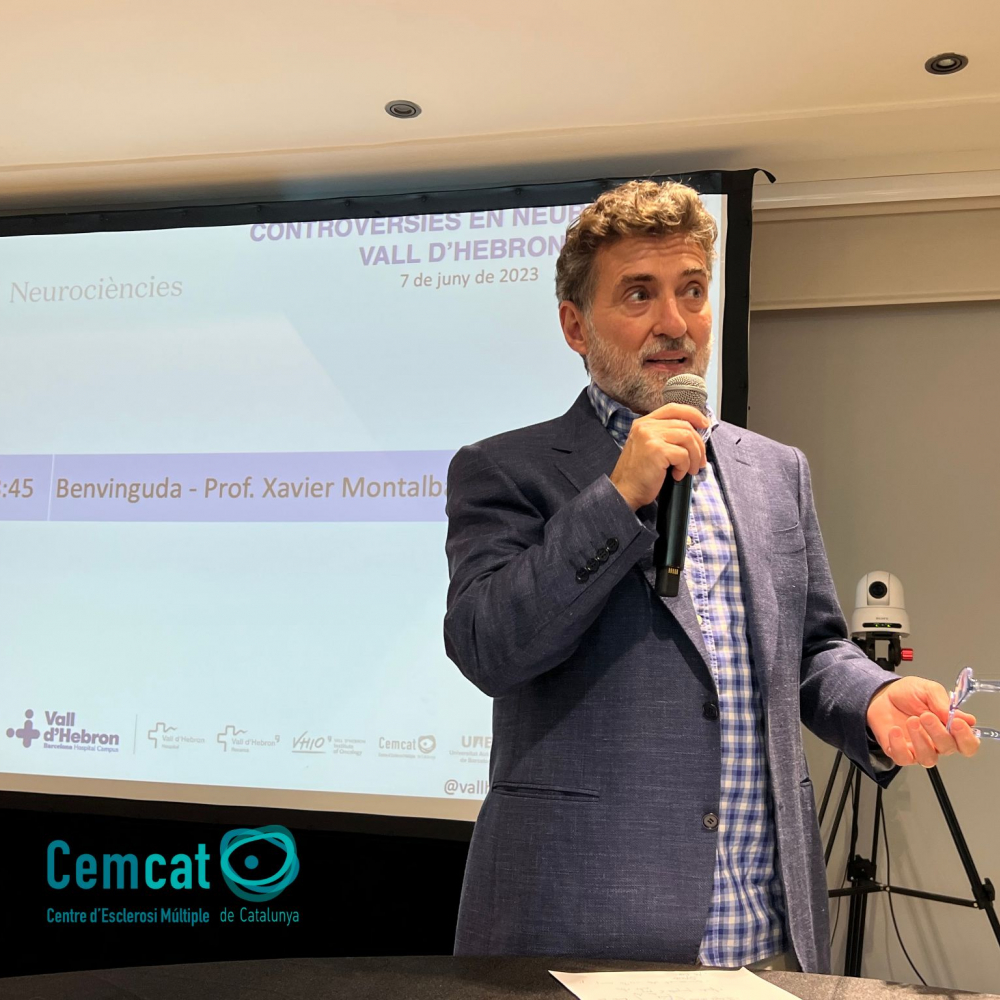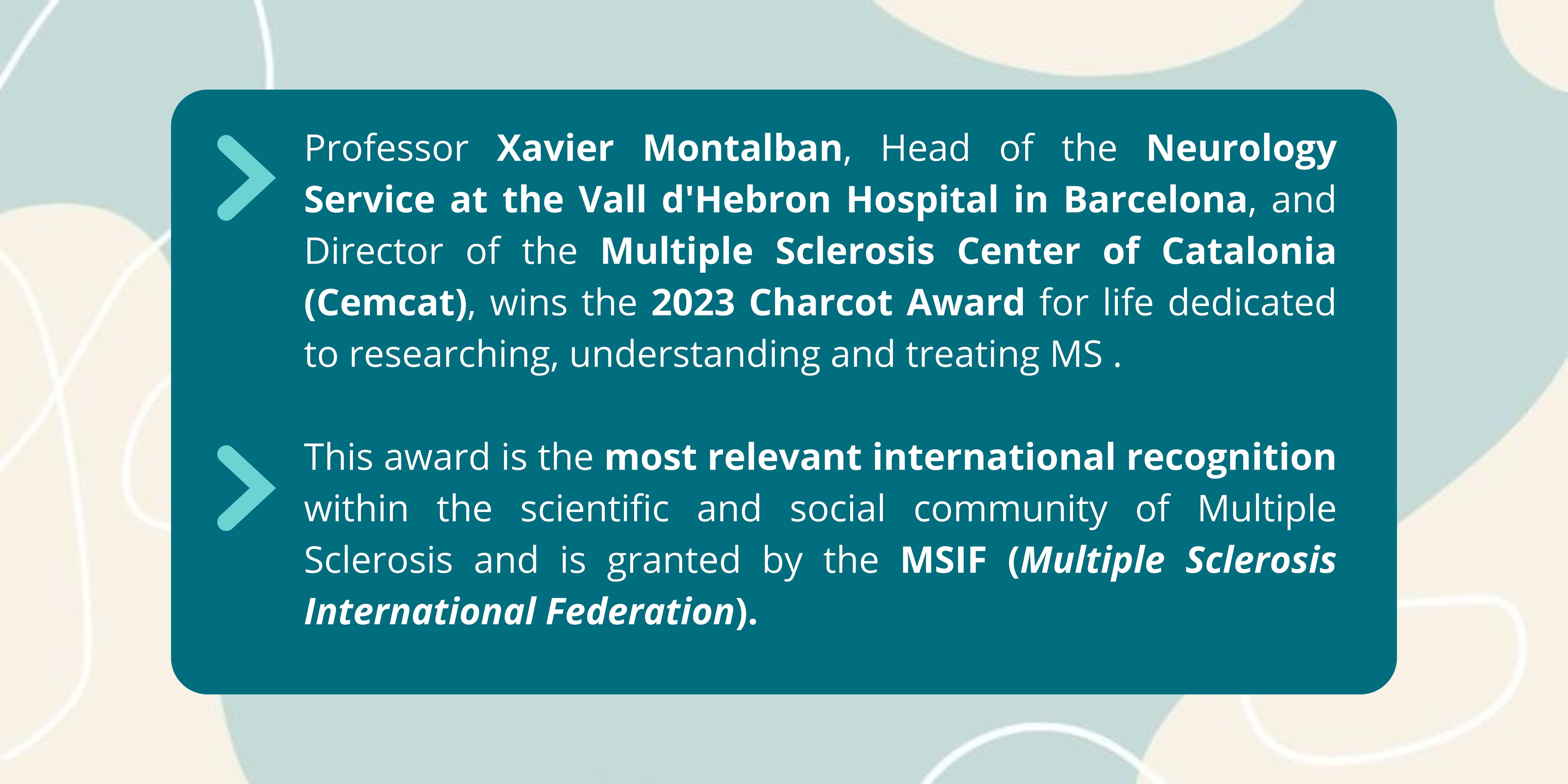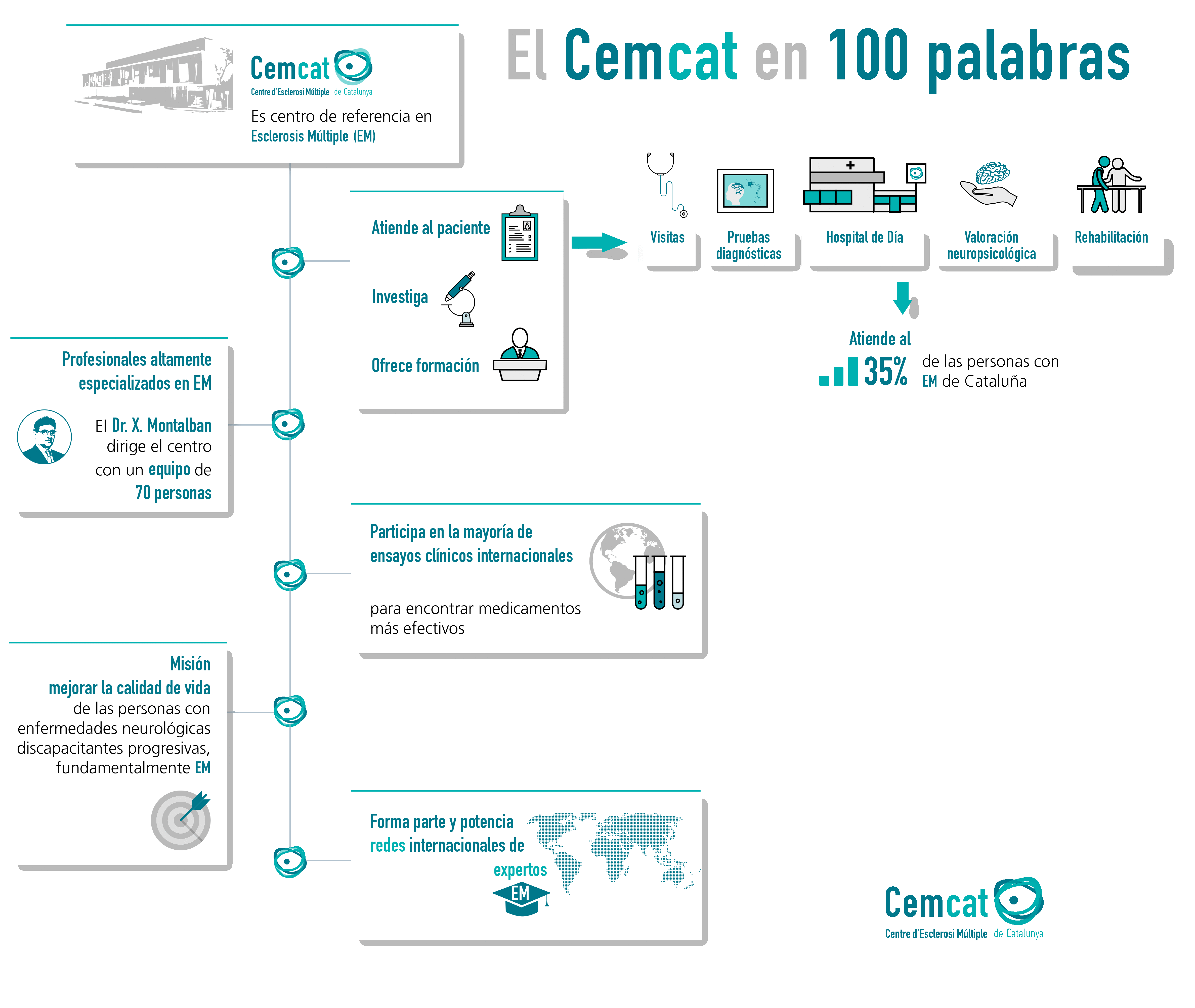You are here
Professor Xavier Montalban wins the highest international recognition for research, research and treatment of Multiple Sclerosis


The MSIF (Multiple Sclerosis International Federation) has awarded the 2023 MS Charcot Award to Dr. Xavier Montalban, professor and director of the Center for Multiple Sclerosis of Catalonia (Cemcat) and Head of the Neurology Service at Vall d'Hebron Hospital (Barcelona). It is the most prestigious international recognition within the scientific and social community of Multiple Sclerosis and it rewards the great advances achieved during a lifetime intensively dedicated to the assistance, research and teaching of the disease.
The tireless involvement and dedication of Xavier Montalban throughout more than three decades of professional career has had a substantial impact in all areas of research and clinical care: diagnosis, treatment of symptoms and background, clinical trials, magnetic resonance, cause and origin of MS, biomarkers and others. The creation of the Multiple Sclerosis Center of Catalonia - which is among the top 5 in the world and provides services to more than 4,000 people - at Vall d'Hebron Hospital represents the culmination of more than 20 years of success. In fact, he has led research, teaching and, especially, clinical practice nationally and internationally. It is a professional path, therefore, which is recognized with the highest award based on the multidisciplinary approach with a high-quality human team who, together, have ensured the improvement of well-being, quality of life in health and autonomy of people with Multiple Sclerosis so that life expectancy is, today, higher than 30 years ago.
The constant work has been fundamental to overcome the obstacles posed by the disease over the years: Xavier Montalban has designed and carried out clinical trials of all phases (I, II and III) which today make up more than 20 therapeutic options to stop the outbreaks of the disease, along with improvements in the use of such important tools as MRI to diagnose, track, and advance the progression of MS. Likewise, the dedication to finding biological and non-biological markers that allow predicting, for example, how the course of the disease will evolve or how it will respond to treatment.




